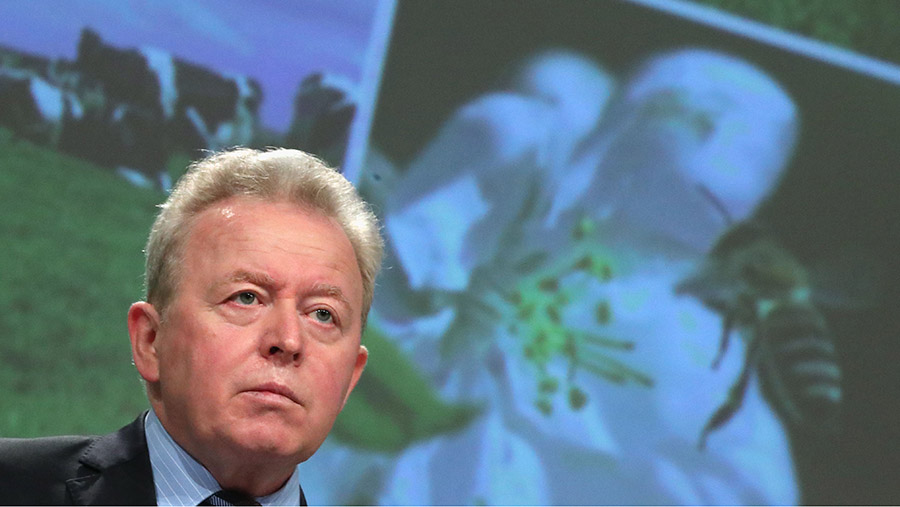A quarter of EU farmland to be organic by 2030
 EU agriculture commissioner Janusz Wojciechowski details the organic action plan © Yves Herman/Pool/EPA-EFE/Shutterstock
EU agriculture commissioner Janusz Wojciechowski details the organic action plan © Yves Herman/Pool/EPA-EFE/Shutterstock The European Commission has unveiled a multibillion-pound plan to put 25% of all farmed land in Europe under organic production by 2030.
About 8.5% of the EU’s agricultural area is currently farmed organically, backed by €7.5bn (£6.4bn), or 1.8%, of the CAP budget.
Trends suggest growing consumer demand would see the land area increase to 15-18% by 2030 without further intervention.
However, under the Action Plan for the Development of Organic Production, the sector will be handed a larger slice of the €58bn (£50bn) earmarked for eco-schemes between 2023 and 2027.
The plan will apply to all member states through national strategies, despite some countries currently having just 0.5% of their land area farmed organically.
See also: UK organic sector needs government backing
States will be expected to draw up plans immediately with clear incentives, objectives and deadlines, with roll-outs beginning in 2022.
As well as funding under the eco-schemes, countries will be allowed to use rural and environmental cash to pay for technical assistance and knowledge exchange for farmers.
This could include funded consultancy and the set-up of organic farming groups to share best practice. Marketing co-ops and local organic food processing facilities will also be incentivised.
Consumption
In addition to the financial incentives to boost production, Brussels has also suggested it will target consumption with a range of funded activities and campaigns.
Member states will be expected to increase the level of organic food bought by the public sector – for schools, hospitals, councils and government offices.
Beyond Europe the plan has hinted at an aggressive promotion campaign in third countries with established organic markets.
In countries where there was little organic farming the report said commission-backed promotional campaigns would be used to develop new outlets to boost EU exports.
The drive will be underpinned by a new, more robust digital database of EU operators that would be used for certification, higher standards and greater traceability.
Launching the plan, EU agriculture commissioner Janusz Wojciechowski referred to figures that suggested organic fields were 30% more biodiverse while livestock required fewer antibiotics and enjoyed better welfare standards.
Mr Wojciechowski also pointed to data that showed organic farms had higher incomes and were more resilient due to trusted EU standards that supported higher prices.
“The organic sector is recognised for its sustainable practices and use of resources, giving its central role in achieving the EU’s Green Deal objectives,” Mr Wojciechowski said.
He pledged to back up the action plan with sustained CAP funding, research and innovation as well as close co-operation with key actors at EU, national and local level.
